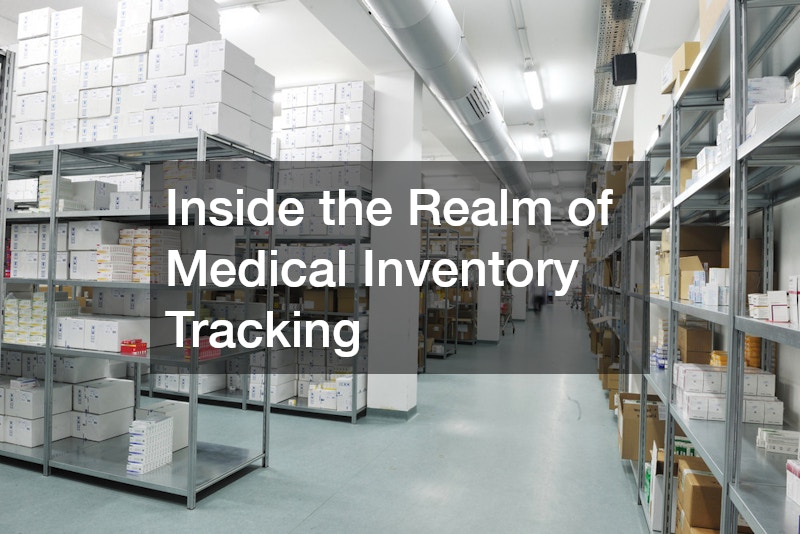Medical inventory tracking is a crucial component in the healthcare industry, ensuring that medical facilities, from hospitals to small clinics, operate efficiently and safely. With the continuous demand for medical supplies, equipment, and pharmaceuticals, keeping track of these items in real-time is vital to providing excellent patient care. The implementation of medical inventory tracking systems has revolutionized how healthcare providers manage their resources, reduce waste, and minimize the risk of errors.
At its core, medical inventory tracking involves the process of monitoring and managing the stock of medical supplies and equipment. This includes everything from basic consumables like bandages and syringes to more complex items like surgical instruments and high-tech medical devices. These systems help healthcare organizations maintain optimal stock levels, ensuring that necessary supplies are available when needed without overstocking or running out.
One of the main benefits of medical inventory tracking is its ability to improve operational efficiency. By automating the inventory management process, healthcare providers can reduce the time spent manually tracking supplies and ensure that they are not wasting resources. This system allows for real-time tracking, meaning that when items are used or received, the data is instantly updated. This real-time information can help prevent stockouts, reduce excess inventory, and ensure that the right supplies are available when required.
The integration of barcodes and RFID (Radio Frequency Identification) technology into medical inventory tracking has taken the process to a new level. With barcode scanners or RFID tags, medical staff can quickly scan items as they are used or replenished. This technology allows for instant updates to inventory levels and offers a more accurate record of stock. RFID tags, in particular, provide added benefits by offering a contactless way to track items in larger quantities, saving time and reducing the likelihood of errors.
Medical inventory tracking also plays a critical role in regulatory compliance. Healthcare providers are required to adhere to strict guidelines regarding the storage, handling, and distribution of medical supplies. By using a tracking system, facilities can ensure that they are meeting these requirements and can easily trace items, particularly those with expiration dates or special storage needs, like vaccines or controlled substances. Additionally, a robust tracking system can help prevent issues with inventory management during audits, as the data can be accessed instantly and is always up-to-date.
Another essential aspect of medical inventory tracking is its role in cost management. Medical supplies and equipment can be expensive, and without effective inventory management, healthcare providers risk overordering or mismanaging stock. This can lead to unnecessary expenses and financial strain. By implementing an efficient tracking system, healthcare organizations can reduce waste, control costs, and make better-informed purchasing decisions. With detailed insights into inventory levels, consumption rates, and order histories, providers can better plan for future needs and make budget-conscious decisions.
Patient safety is another major consideration in medical inventory tracking. When healthcare facilities experience stockouts of critical items, it can directly affect patient care. For example, a shortage of surgical supplies or medications can delay procedures or treatments. On the other hand, excess inventory can lead to expired goods being disposed of, which not only wastes money but may also result in the use of outdated equipment or supplies that could jeopardize patient safety. An accurate inventory tracking system ensures that healthcare providers can maintain optimal stock levels, reducing the risks associated with both stockouts and overstocking.
The future of medical inventory tracking continues to evolve with the advancement of technology. AI-powered systems are increasingly being implemented to predict supply needs based on trends, seasonal fluctuations, and historical data. Additionally, cloud-based inventory systems enable healthcare providers to access inventory data remotely, ensuring that information is always available, no matter the location. These innovations promise to further enhance the accuracy and efficiency of medical inventory tracking, making it an indispensable part of modern healthcare management.
In conclusion, medical inventory tracking is an essential practice that ensures healthcare facilities remain efficient, compliant, and safe for both patients and staff. By leveraging advanced technology such as barcode scanning, RFID, and AI-powered systems, healthcare providers can improve operational efficiency, reduce costs, and ensure that the right supplies are available when needed. As the healthcare industry continues to face growing challenges, the role of medical inventory tracking will only become more critical in ensuring that healthcare organizations are well-equipped to deliver high-quality care.
.



